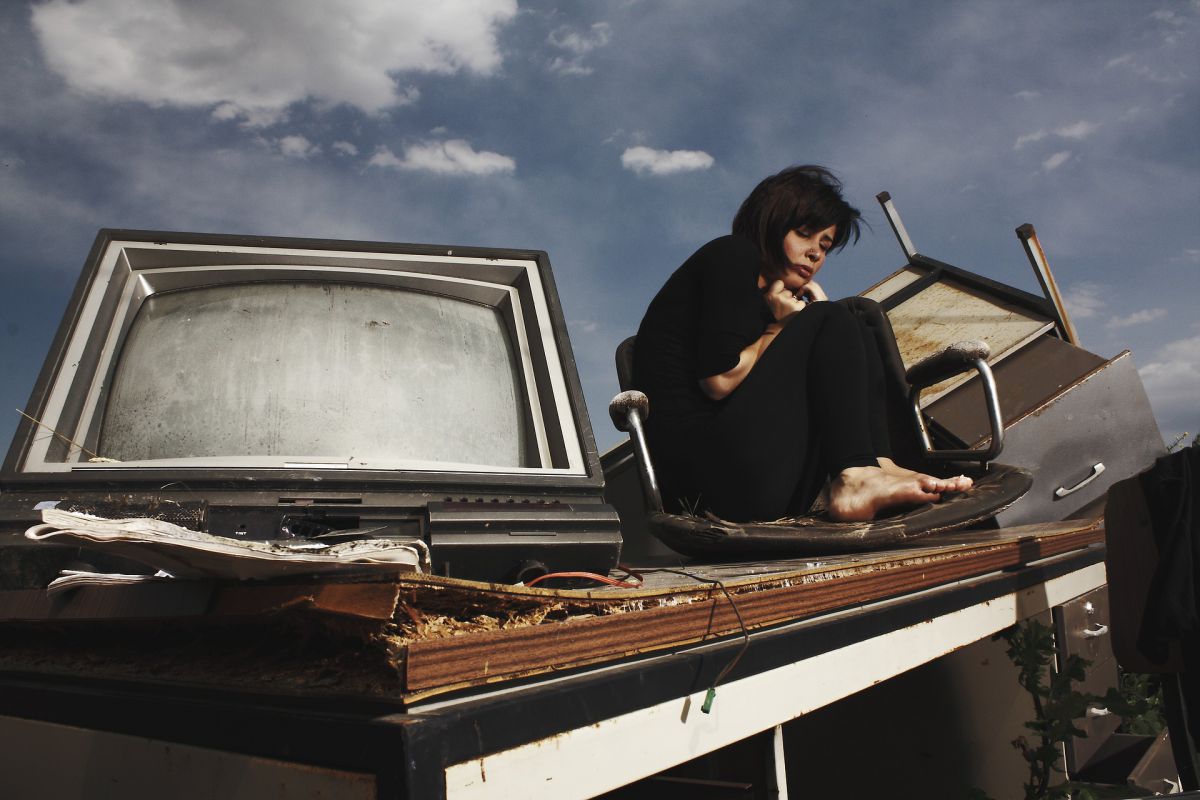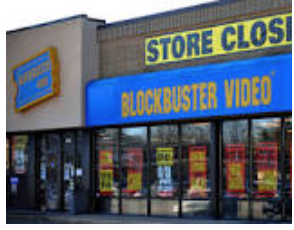Thaddeus Howze is a science fiction and fantasy writer, technology consultant, polymath, autistic, creator of worlds, iconoclast, humanist and occasional bastard (nobody’s perfect). Read more about Thaddeus here.
KEEP CALM AND WATCH MORE TELEVISION
Courtesy of Thaddeus Howze
New phrases to describe your television watching habits.
#bingewatching #cringewatching #hingewatching #singewatching#fringewatching
ASYNCHRONOUS, DELIVERED ACROSS THE AIRWAVES
 In the beginning, there was television and it was all there was. Shows were filmed, recorded and broadcast over the airwaves at a designated time.
In the beginning, there was television and it was all there was. Shows were filmed, recorded and broadcast over the airwaves at a designated time.
You watched it when it aired. Or worse, you didn't. If you missed it, you might have to wait for what seem like forever, to see it again. You were the laughing stock of your friend-group and you loathed their secret knowledge of a thing you had not experienced.
And then there was syndication. And it was good. When a show ended, if you hadn't managed to ever be around when your particular missed show took place, you could, with the help of your handy-dandy TV Guide (okay kiddies, look it up), plot out your path to the show you missed and become one with your television again.
Syndication gave you back your life. Then came technology which would change your relationship to television forever. You could record television with your video recorder. The much maligned Betamax and the visually inferior VHS recording device became a part of the life of every person who could afford one.
Only the blinking of the 12:00 upon its LED dashboard revealed our hidden contempt for its complexity.
And there was freedom from the clock, freedom from the control of live television, freedom to tell Nielson to get bent. We were free at last! Hallelujah!
We could record two hours of anything we wanted, assuming we could ever get the technology to work for us. If you couldn't program your clock, however, you were likely to have to stand there and tell your device to record manually.
It was not ideal, but it was still a form of freedom.
The technology advanced letting you record up to six hours of video on a single video cassette.
BLOCKBUSTER LIVES (1985)
This was the era of Blockbuster and it was good. Except for the video rental late fees. Those were always bad. Be kind, rewind was the renter's motto.
And lo, cable was born and we were offered a new way of looking at television. It was television but it wasn't. It was without commercials. It was non-stop. It didn't end in the morning at two AM with screens of snowy static or dead-space tones which told you the programming day had ended.
Cable never ended. It just replayed the same thing it had yesterday. HBO, Home Box Office replayed the same things so often, it was often said, HBO meant Hey, Beastmaster's On. Beastmaster was the first movie licensed to HBO and became the series which headlined their network for half a decade.
Cable evolved and soon offered more programming than television ever could. The hunger for more TV than a person could watch had arrived. New stations formed, new services were founded and soon there were five hundred channels and nothing was left to the imagination.
Cable killed Blockbuster, as surely as it crept up behind it and brained it at a table discussing treachery and villainy. Cable could be recorded but there was less need. After all, it would be back again, sometimes in the same day.
BLOCKBUSTER DIED. (2010, sold to Dish Networks)
 But the VCR was still good. Sports enthusiasts who hated commercials were in heaven. Anyone who hated commercials considered this technology a blessing. I know. I was one of them.
But the VCR was still good. Sports enthusiasts who hated commercials were in heaven. Anyone who hated commercials considered this technology a blessing. I know. I was one of them.
Cable became the norm. Television continued to exist. Networks struggled to become edgier. Cable became edgier effortlessly. Networks did their best to keep up.
Viewers thrilled to the changes in television and cable in the nineties. So many choices, so little time left to watch television. Americans adjusted. We just watched more television. Sometimes up to eleven hours a day.
How was one supposed to keep up with all this amazing television? With a Digital Video Recorder. Think VCR with the capacity to hold twenty to forty hours of television.
Tivo dethroned the VCR overnight. VHS tapes became kindling to start fires and DVRs became the norm. Leading to the final evolution of television, a transformation so astounding, so revolutionary, it sparked its own meme.
STREAMING FROM THE CLOUD (1995, Netflix)
Streaming was born. So much for VCR, so much for DVR, now we could hold your television for you in the cloud. Entire video libraries at your fingertips. Forever. At least that's what we thought. As long as you could connect to the Internet, you could be watching television. Nothing bad could happen from this evolution right?
Except for that pesky up-tick in traffic accidents, but this was considered a price worth paying.
 Surely no further evolution could happen to make TV more convenient, right? Wrong. Netflix released an entire series of a television show in a single day.
Surely no further evolution could happen to make TV more convenient, right? Wrong. Netflix released an entire series of a television show in a single day.
Mind blown.
BINGE-WATCHING WAS OFFICIALLY BORN (April 10, 2015)
This created a new condition so revolutionary, the phrase "binge-watching or bingeing" was born.
Lo the heavens split open and poured out upon the ground a single complete season of never seen before goodness which cause television viewers to exclaim to the heavens, more, dear gods of television, more. And their prayers were answered.
The ultimate expression of television had been reached. The capacity to, in a single day absorb not just a single hour, or a a bounty of two hours of television, which was the norm for a show in the time of Networks, or a miniseries, which was four hours of television spread out over a week, now you could seen the entirety of a television show with eight to twelve hours at one time.
An orgasmic explosion of goodness which left viewers stunned, their minds opened, their bladders bursting, their eyes bleary, their bellies exploding, and their hunger for media expanded beyond any reasonable expectation.
Welcome to the era of binge-watching. In addition to anything which had ever existed up till now, you had the option to have streaming services cater directly to you and release their content in a single burst of creativity.
Literally, this is the best any television service could possibly offer. An entire season in a single night.
DIGITAL, ON DEMAND VIDEO
The apotheosis of digital media. Digital, on-demand video. Within reason you can watch whatever your heart and your wallet desires and can afford to hunt for, across seven streaming services, three cable networks and a growing number of individual network services provided directly from distributing agencies such as CBS and now, Disney.
With the advent of a season being delivered in its entirety, a new trend in television watching took root. Binge-watching became the way viewers now absorbed television. Instead of watching television shows one week at a time ala network TV, you could now enjoy shows the way a junkie enjoys their heroin, in one long drawn-out, mind-numbing series of episodes.

Until your soul cries out for release.
Binge-watching or bingeing is not just for the new and exciting. With services like Hulu and Netflix, viewers could catch up on entire seasons of things which had come and gone, into the annals of history. (Some of those things should have stayed forgotten) but for some viewers, now conditioned to absorbing media and hungry for anything have started combing through their virtual back lots for more.
But bingeing would lead to other forms of television absorption based on the ability to binge one's television.
HINGE-WATCHING
For some television being made today, there are shows which supported each other and connections are made between the shows. Easter eggs which show connectedness. Characters, story elements, ideas, even actors, might cross the digital divide making shows feel more real, more related, more connected than television has ever been before.
Marvel's Cinematic Universe is a series of loosely-connected movies and television shows which have overlapping elements. DC Entertainment's CW shows have also started overlapping and cross-pollinating and where our next term draws its origin.
Enter hinge-watching.
If you're hinge-watching, you are trying to watch everything associated with a particular series and for some series to be understood, you MUST consume the media in the proper order, hence hinge-watching. The MCU has spawned an industry of answers over which episodes are relevant, necessary and in what order are the proper story elements released. Fans now battle to prove they are the definitive source of what order to watch things in and why.
If you are a hinge-watcher, you know your series of choice has elements which hinges upon the viewing of the previous materials. You don't have to watch them, but for maximum continuity and integrity, the hinge-watcher leaves nothing to chance.
For example: To enjoy the recent Defenders series by Netflix, the show hinges upon the adventures of Matt Murdock, also known as Daredevil. Without watching Daredevil, the show simply loses much of its initiative and steam.
Daredevil's adventures inform much of what takes place in Defenders and the show would make literally no sense without him.
CRINGE-WATCHING
Which leads to our next form of viewing: shows you might have to view to understand a series but hate the effort so much, you might be said to be "cringe-watching" said series.
The same way Daredevil is the hinge in the Defenders series, the character, Iron Fist, is the cringe in the series. Iron Fist is the opposite of Daredevil; poorly-written, lazily-acted, badly-choreographed, a show which literally should have no reason for its existence, except as a tent pole for the Defender series.
Iron Fist may be required for the Defenders stories, but you will assuredly NOT enjoy the series nearly as much as any of the other heroes in the series (Luke Cage, Jessica Jones) making it the worst of the lot.
SINGE-WATCHING
Singe-watching is a more positive connotation for binge-professionals. Singe-watching is not just watching a series, you are live-tweeting it, you are posting online about it, you are sharing it with your friends, you are annoying your loved ones, you will shout it to the Universe at large; extolling the virtues of the series, sharing elements of the writing, promoting the beauty of the cinematography, the amazing dialogue, or any of a number of other features you can see and want others to appreciate with you.
Because to the singe-watcher, much sought after by companies, nothing matters unless you can get others to experience the heat the same way you do. Shows like the Flash, Arrow, Westworld or Game of Thrones have their own singe-watchers who promote the show and have followings because of their insight, their understanding and sharing of views with other kindred spirits online.
Singe-watching is real and it is making its own brand of celebrity writers out there.
FRINGE-WATCHING
Last, but not least, is the exotic art of fringe-watching. In a world where media is everywhere and entire libraries of everything imaginable is ready for consumption, there are still some things which won't be watched, by anyone. Half the time, with the growth of media libraries, it is hard to tell when something has changed. Keeping up is almost impossible.
Enter the fringe-watcher. They have already consumed all of the good stuff online. They have already supped at the three out of five star menu of movies. The fringe-watcher dares to enter the land of the two star or even one star movies.
They will not be denied. If the potential for quirky, but good, can be found, the fringe-watcher knows them all. They are the brave, the bold, the fringe-watching. They know every episode of One Piece by heart, all one thousand of them.
No show is too obscure and the fringe-watcher finds them fascinating. They may write new series bibles, analyses, fan fiction or anything else which tickles their fancy. Shows like Mongrel (BBC funny-vulgar animals), Rick and Morty featuring mad-scientist hijinks, and Duckman, adventures in dysfunctional family fun. To the fringe-watcher, his badge is found in the extremity of the shows he enjoys.
So keep calm, binge, hinge, fringe, singe or cringe. You do you. Just keep watching television, for god's sake, actors, writers, directors, animators, and distribution houses are counting on you. You can't stop now. You can't stop ever. Michael Bay needs at least three explosions a day to live.
What is going to happen on television next? Beamed directly into our brains, I bet… Assuming we have any brains left.
*****
Thaddeus Howze is a prolific writer of speculative fiction, scientific, technical and cultural commentary from his office in Hayward, California. He writes as a columnist for the Good Men Project, a social men's magazine and Krypton Radio, a sci-fi enthusiast media station and website. He is also a freelance journalist for Polygon.com and Panel & Frame magazine.
Thaddeus is the co-founder of Futura Science Fiction Magazine and one of the founding members of the Afrosurreal Writers Workshop in Oakland. Thaddeus' work has appeared in numerous anthologies and he published two books, 'Hayward's Reach' (2011), a collection of short stories and 'Broken Glass' (2013). More here.




